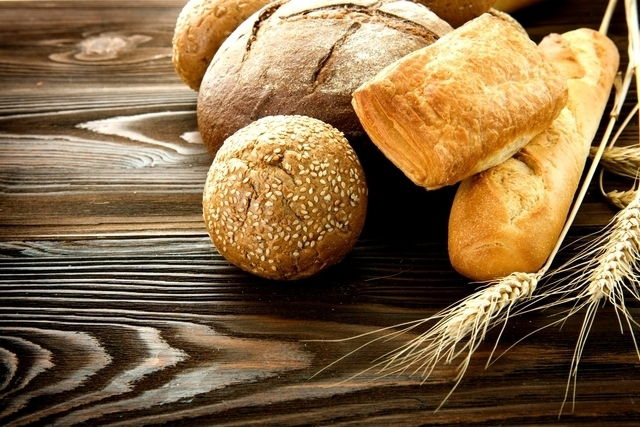Foods with gluten are typically those that contain wheat, barley and rye flour. These can cause abdominal inflammation in some people, particularly in those who have an intolerance or sensitivity to gluten. Gluten consumption can trigger other symptoms like diarrhea, abdominal pain, nausea and bloating.
If you are looking to avoid food that contains gluten, you should look for products that are labeled "no gluten" or "gluten-free."
Learn about the symptoms of gluten intolerance and complete our online quiz to determine your risk for this condition.

List of food with gluten
Below is a list with several examples of foods containing gluten, which should not be consumed by those with a gluten sensitivity or gluten intolerance:
- Bread, toast, biscuits, cookies, cakes, pasta, croissants, donuts, and wheat tortillas
- Pizza, snacks, hamburgers, hot dogs
- Sausage and other sausages
- Beer and malt drinks
- Wheat germ, couscous, bulgur, wheat semolina
- Some cheeses
- Sauces such as ketchup, white sauce, mayonnaise, soy sauce and other processed sauces
- Brewer's yeast
- Ready-made seasonings and powdered soups
- Cereals and cereal bars
- Nutritional supplements
Oats are a food that does not contain gluten, however during their production process, they can be contaminated with wheat, barley or rye (as they are normally processed in the same factories). Additionally, some medicines, lipsticks and oral hygiene products may contain gluten.
How to follow a gluten-free diet
A gluten-free diet is mainly recommended for people who have an intolerance or sensitivity to gluten. However, everyone can benefit from this type of diet, as most foods that contain gluten are also rich in fat and sugar, which can lead to increased calorie intake and weight gain.
To follow a gluten-free diet, it is important to replace wheat, barley or rye flour with other flours that do not contain gluten, especially when preparing cakes, cookies and bread. Some examples are almond, coconut, buckwheat, carob or amaranth flour. Check-out a list of gluten-free foods that you can incorporate into your diet.
When purchasing processed products, it is very important to pay attention to food labels, as all food products, by law, must declare whether or not they contain gluten in their composition. Furthermore, some countries also require restaurants to disclose whether or not the meal contains gluten, i
You may benefits from monitoring by a registered dietitian to avoid unnecessary elimination of some foods from the diet. An RD can also help to adapt your diet according to your individual needs and health goals.






























